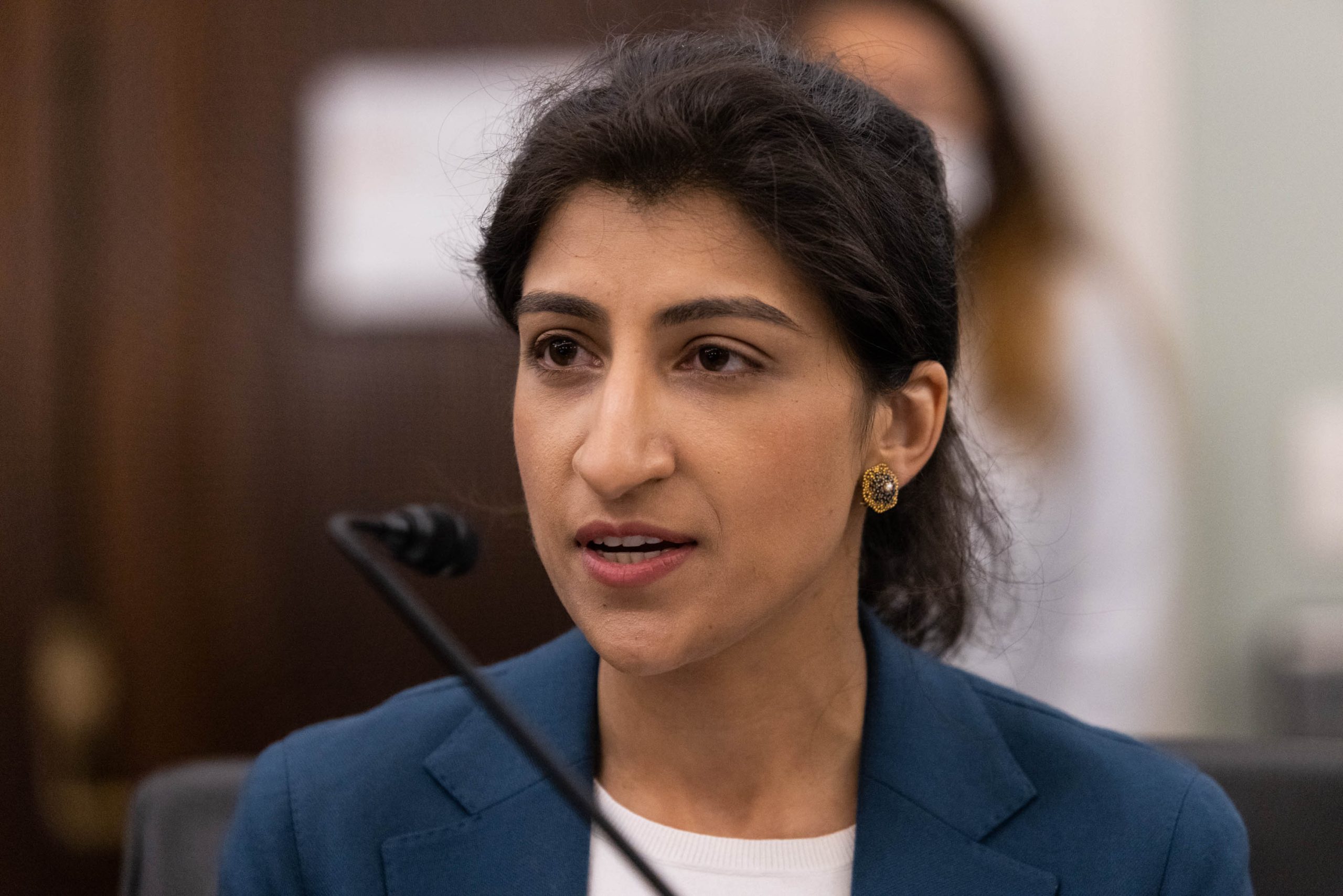
Following a decisive victory in the New York City mayoral race, Zohran Mamdani’s campaign announced a significant appointment to his transition team, tapping former Federal Trade Commission (FTC) chair Lina Khan as one of four co-chairs. This move, unveiled shortly after Mamdani secured the city’s top executive position, immediately resonated through political and economic circles, signaling a clear intent to reshape the relationship between municipal governance and corporate power in the nation’s largest metropolis. Khan, a prominent advocate for robust antitrust enforcement and a frequent critic of unchecked corporate influence, has previously expressed support for Mamdani, notably commending his outreach to small business owners in a published op-ed. Her formal inclusion in his incoming administration’s foundational team sends an unequivocal message to the financial giants of Wall Street and the burgeoning tech industry, many of whom have already voiced strong opposition to Mamdani’s progressive platform.
The Architects of a New Agenda: Mamdani’s Rise and Khan’s Influence
Zohran Mamdani, a Democratic socialist, emerged victorious from a crowded and intensely contested mayoral primary and general election, propelled by a platform that championed economic equity, affordable housing, and significant reforms to the city’s social safety net. His campaign resonated with a segment of the electorate yearning for a stark departure from conventional urban politics, particularly concerning the influence of large corporations and wealthy individuals. Mamdani’s policy proposals, including a controversial 2% tax on incomes exceeding $1 million and increased regulation of the gig economy, drew sharp criticism from prominent figures in finance and technology, who argued such measures could deter investment and stifle innovation in the city. His rhetorical critiques of billionaires further exacerbated these tensions, creating an ideological chasm between his campaign and the city’s economic elite.
The selection of Lina Khan as a co-chair for this critical transition period is not merely an endorsement but a strategic alignment. Khan, an academic and legal scholar, rose to national prominence for her groundbreaking work on antitrust law, particularly her 2017 Yale Law Journal article, "Amazon’s Antitrust Paradox." In this seminal piece, she challenged prevailing antitrust doctrines that had prioritized consumer prices over market structure, arguing that the focus on price alone failed to capture the full scope of harm caused by concentrated corporate power. This intellectual framework, often associated with the "New Brandeis" movement in antitrust, posits that large corporations can wield immense power over workers, suppliers, and even democratic processes, irrespective of whether they offer low prices to consumers.
Her appointment as Chair of the Federal Trade Commission by President Joe Biden in 2021 marked a pivotal moment for antitrust enforcement in the United States. During her tenure, Khan spearheaded an aggressive agenda aimed at curbing the power of tech giants like Amazon, Microsoft, Meta, and Google. She initiated numerous investigations, challenged several high-profile tech mergers, and sought to reinterpret existing antitrust statutes to address contemporary market realities. While some of these actions faced legal hurdles and did not always result in outright blockages, her assertive approach significantly altered the regulatory landscape, leading to accusations from some in Silicon Valley that she was intentionally slowing down the pace of acquisition deals and innovation. Her critics, including prominent tech investors like Reid Hoffman and Vinod Khosla, openly questioned her approach, with Khosla famously describing her as "not a rational human being" in an interview. Despite the criticisms, Khan’s tenure at the FTC solidified her reputation as the nation’s leading antimonopoly champion, a title proudly highlighted on Mamdani’s transition website.
A Clear Mandate for Change: The Ideological Crossroads
Mamdani’s electoral success, coupled with Khan’s influential role, signifies a broader ideological shift within progressive politics, both locally and nationally. In a speech delivered the day after the election, Khan articulated this sentiment, stating, "What we saw last night was New Yorkers not just electing a new mayor, but clearly rejecting a politics where outsized corporate power and money too often end up dictating our politics." She characterized Mamdani’s victory as "a clear mandate for change where New Yorkers can get ahead, and where all workers and small businesses can thrive – not just get by."
This perspective directly challenges the established norms of urban governance, particularly in a city that serves as a global financial capital. The argument posits that while large corporations and wealthy individuals contribute to the city’s economic vibrancy, their unchecked power can exacerbate inequalities, drive up living costs, and undermine democratic accountability. Mamdani’s platform explicitly sought to address these issues by advocating for policies designed to redistribute wealth, strengthen worker protections, and increase government oversight of key industries.
Wall Street and Silicon Valley’s Apprehensions: Economic Fallout or Necessary Rebalancing?
The reaction from Wall Street and Silicon Valley to Mamdani’s ascent and Khan’s involvement has been one of significant apprehension. Prior to the election, powerful figures and entities invested heavily to oppose Mamdani. Airbnb co-founder Joe Gebbia, alongside billionaire investors Bill Ackman and Mike Bloomberg, reportedly spent millions of dollars advocating for former New York Governor Andrew Cuomo, who ultimately placed second. DoorDash, a major player in the gig economy, contributed $1 million to a Super PAC supporting Cuomo, underscoring the industry’s concern over Mamdani’s proposed regulations.
Mamdani’s platform specifically called for increased regulation of delivery apps and enhanced protections for their subcontracted gig workers, a stance directly at odds with the business models of many modern tech companies. These companies often rely on flexible, independent contractor arrangements to manage costs and scale operations, arguing that such flexibility benefits both the companies and the workers. However, critics, including Mamdani and Khan, contend that this model often deprives workers of essential benefits, fair wages, and job security, effectively externalizing costs onto the public and individual laborers.
The fear among business leaders is that Mamdani’s policies, amplified by Khan’s expertise in challenging corporate power, could lead to a less favorable business environment in New York City. Concerns range from increased taxes and regulatory burdens to potential labor disputes and a perceived decline in the city’s attractiveness for investment and talent. The "brain drain" argument, suggesting that high taxes and regulations could drive wealthy individuals and businesses out of the city, is a frequently voiced apprehension. Conversely, supporters argue that these measures are essential for creating a more equitable and sustainable economy, ensuring that the city’s prosperity benefits all residents, not just a select few.
Transitioning Towards a New Era: The Role of the Transition Team
The transition team plays a pivotal role in shaping the incoming administration’s priorities, identifying key personnel, and developing a strategic roadmap for governance. It is a period of intense policy formulation and logistical planning, laying the groundwork for the mayor-elect’s first 100 days and beyond. Khan’s specific focus within this team, as confirmed by her spokesperson Douglas Farrar, will be on economic policy and personnel, indicating her direct involvement in crafting the financial and regulatory framework of the new administration.
Alongside Khan, three other distinguished co-chairs will guide Mamdani’s transition: Grace Bonilla, president and CEO of the United Way of New York City, a non-profit dedicated to improving lives and communities; Maria Torres-Springer, a seasoned public servant and former first deputy mayor of New York City; and Melanie Hartzog, president and CEO of the non-profit New York Foundling, which focuses on child welfare and family services. This diverse group brings together expertise in social services, urban administration, and economic policy, suggesting a holistic approach to city governance. The overall transition effort will be led by Elana Leopold, a trusted advisor from Mamdani’s campaign who previously held several senior roles within the de Blasio mayoral administration, bringing invaluable institutional knowledge to the team.
Navigating the Future of New York City: Challenges and Opportunities
The appointment of Lina Khan to Mayor-elect Zohran Mamdani’s transition team marks a significant moment in New York City’s political trajectory. It underscores a commitment to a progressive agenda that prioritizes social equity, worker rights, and a recalibration of corporate influence. While this vision has galvanized a broad base of support, it also presents substantial challenges in a city deeply intertwined with global finance and a rapidly evolving tech sector.
The task ahead for Mamdani and his team will be to translate ambitious policy proposals into practical governance, navigating complex economic realities and diverse stakeholder interests. Balancing the desire for greater social equity with the need to maintain New York City’s economic competitiveness will be a delicate act. The discussions and decisions made during this transition period, particularly under Khan’s guidance on economic policy, will undoubtedly set the tone for the Mamdani administration, potentially redefining the relationship between government, business, and citizens in one of the world’s most influential cities. The message is clear: a new era, characterized by a renewed focus on challenging established power structures, is dawning in New York City.






